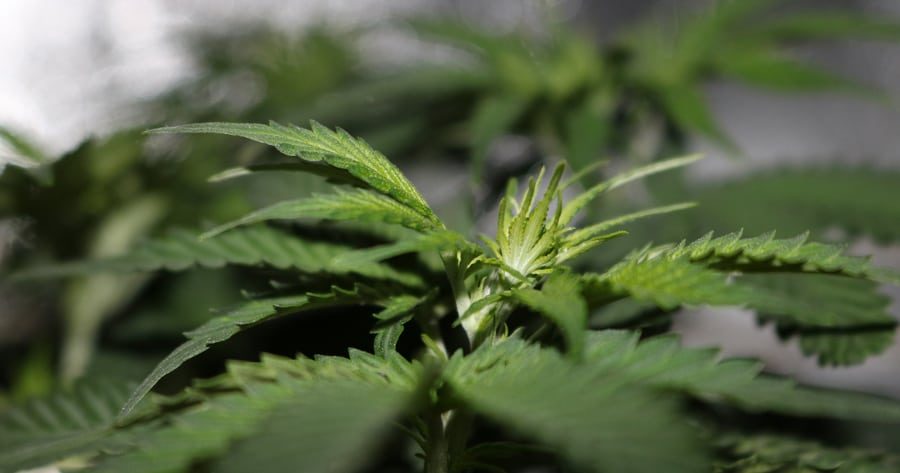
Home » Using legal marijuana could hinder job search, security
Using legal marijuana could hinder job search, security

November 15, 2017
By Michelle Dupler
It’s been legal to toke up in Washington for a couple of years now, but experts say it may not be the best idea when looking for a job.
Employers can decline to hire people based on a pre-employment drug test — or fire them based on random drug screenings after they land the job.
“Employers are free to require employees to be drug-free. They have the complete discretion to test and to fire, even if the employee has a medical authorization,” said Rep. Roger Goodman, D-Kirkland, chairman of the House Public Safety Committee and a Seattle-based cannabis lawyer and reform advocate.
And the Legislature isn’t likely to intervene, given that drug testing is private employment policy, he added.
“We don’t regulate private industry that way,” Goodman said.
The state has jurisdiction over some labor laws, including wage and hour requirements like the minimum wage and workplace safety issues, but not whether private employers choose to hire or fire someone based on what’s in their blood stream, he said.
However, with the combination of legalization and a tight labor market, attitudes toward cannabis use by employees and drug testing may be changing.
Roshelle Pavlin, president-elect of the Northwest Human Resource Management Association, said there was initial anxiety in the human resources industry when marijuana was legalized, but the environment since has calmed.
“Once it settled down, most (employers) I’ve spoken with treat marijuana like alcohol — it’s legal, what you do on your own time is your own business; don’t come to work inebriated,” Pavlin said.
She noted that employers with federal contractors — like many businesses in the Tri-Cities — must remain diligent because cannabis remains an illegal Schedule I drug under federal law and cannabis use won’t pass a federal background check or security clearance screening.
“I think for employers that are federal contractors, nothing has changed,” Pavlin said.
Another class of employers which tends to continue both pre-employment screenings and random drug tests are businesses employing skilled workers who operate heavy equipment, who drive on the job or where marijuana use might otherwise create a safety issue.
“It is employer by employer, sometimes position by position,” Pavlin said. “If the job is safety-sensitive, they are still screening and expecting people to be clean when they do screening.”
Pavlin said job seekers should consider that they may be asked to pass a drug test before getting hired, which means having cannabis out of their system for at least 30 days.
But they also need to think about the possibility of random screenings once they’re on the job, she added.
“Most places that do pre-employment screening may do random screening and that sort of thing, so when I have spoken with groups of people looking for jobs, I tell people honestly, ‘It’s your lifestyle choice. You have to decide which is more important to you, because just staying clean for a month before you start looking for jobs and starting up again, if that employer also does randoms … know what your choice is before your job search,” Pavlin said.
Jason Jones, owner of the Kennewick franchise of Express Employment Professionals, said most job seekers are aware employers can continue to drug test even though marijuana is legal, but that wasn’t always the case.
“If we had people in the waiting room who heard we were doing drug testing, they would disappear — they would sneak out the door,” Jones said. “Now it has settled down. People have a better understanding.”
Both Pavlin and Jones said most employers who drug test explain that up front so that job seekers can be aware, and many employers take a laissez faire attitude toward marijuana as long as it doesn’t interfere with the employee’s job.
Jones advised job seekers who want to work with staffing agencies such as Express to be honest about their cannabis use prior to applying for a job that requires drug testing.
“There’s no point in wasting our time in taking a test you know you’re not going to pass. If you fail a test, there’s a waiting period before we can employ you again,” Jones said.
The tests themselves are a topic of discussion, given that someone can test positive for marijuana use for as long as a month afterward, depending on the test.
Jones said his company is exploring using an oral swab that looks at a 24- to 48-hour time period rather than the 30-day snapshot given by a urinalysis.
Goodman noted the efficacy of marijuana tests is being discussed from the public safety angle and whether it makes sense to charge someone with driving under the influence if their use was a month before they got in their car.
Additionally, chronic marijuana users tend to produce higher test results with lower actual impairment than an occasional or first-time user, who might produce lower test results but experience stronger effects, Goodman said.
“My committee is still trying to determine the best way to measure,” he said.
Local News Labor & Employment
KEYWORDS november 2017




